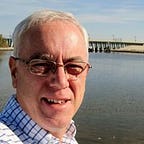The Eternal Engineer
The world has changed radically over the 300-year life of the engineering profession, but the characteristics desired in an engineer have not.
The birth of engineering as a profession occurred at the end of the 17th century, when Sébastien Le Prestre de Vauban organized French engineers into an elite corps to serve the king, Louis XIV. The term “engineer” appears, perhaps for the first time in print, in 1765 as an entry in Denis Diderot’s Encyclopedia. The word derives from the old Latin ingenium, which refers to natural capacity or talent.
Membership in the corps of engineers provided social status, financial security, and a predictable path to advancement. In the middle of the 18th century, young engineers received one or two years of classroom training at one of three specialized schools, followed by several years of practical training under the guidance of senior engineers.
The article in Diderot’s Encyclopedia tells us that in 1765 France had only three types of engineers. Military engineers worked on creating fortifications and defeating them. Naval engineers were concerned with all aspects of life and war on the seas. And, the engineers of “ponts et chaussées” were occupied with the perfection of streets and highways, the construction of bridges, and the management and repair of canals.
Beginning at the end of the 18th century, advances in science and technology sparked the industrial revolution that transformed France and the rest of the world over the next 100 years. Coal was tapped as a new source of energy to power industry through, first, steam and then electricity. Iron and steel were produced cheaply and in large quantities. Transformation from rural, agrarian economy to urban, industrial economy fueled social and political upheaval throughout the world.
The same advances in science and technology expanded the scope of engineering practice. Advances in the science of mechanics and new materials transformed the design and construction of buildings; engineers assumed responsibility for the design and functioning of the modern city. Steam power and electricity revolutionized transportation and communication: engineers took the lead in creating world-wide transportation and communication networks. As new technologies eroded national boundaries, engineers found new purpose in service to the public good.
However, the qualifications that defined engineers today remain much the same as at the beginning. Engineers in the mid-18th century were educated in mathematics and science, and they trained to acquire practical knowledge in areas of engineering practice — the construction of buildings, fortifications, and hydraulic works. But, they also needed to know history, grammar and rhetoric as accessories in the application of their expertise to real-world problems.
The personal characteristics that define engineering excellence are similar as well. In 2004, the US National Academy of Engineering compiled a vision for the future of engineering. The characteristics they identified for a successful engineer in the year 2020 included strong analytical and communication skills, practical ingenuity, and creativity . These are the same as identified by in Encyclopedia from 1765.
As are the consequences for their absence.
Vauban summed up the capabilities that engineers should strive to bring to any project — infinite care, common sense, and perfect knowledge of all works, materials, and the capabilities of workers. Lacking these, he added, the consequences for the project will be delay, superfluous expense, bad manners, and an inevitable string of “accidents” resulting from the mediocre intelligence of those in charge. Vauban’s insight is still relevant today.
RE: Engineering publishes occasional notes and comment on what it means to be an engineer in a world created by science and technology. Being an engineer requires specialized knowledge, an insatiable interest in how things work, and a knack for solving problems. But, on a personal level, an engineer cannot be anything else. Sign up to receive future issues.
